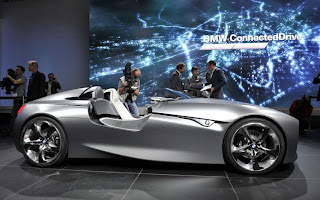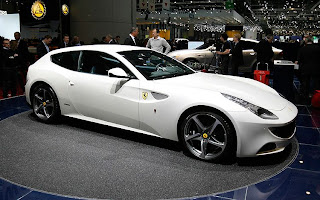BMW ActiveE
The original BMW ActiveE concept shown last year looked nearly production ready -- and given the specifications on the production test vehicles, it seems that it may have been. The powertrain and nearly-stock 1 Series body of the test vehicles is virtually identical to the concept, suggesting that the last year of development was spent fine-tuning the electric vehicle's sensitive electronics.
As the powertrain is also identical to the concept, the ActiveE test vehicle uses an electric motor housed in the rear axle for propulsion. It produces 127 kilowatts (170 horsepower) and 184 pound-feet of torque, which can propel the ActiveE from 0 to 60 mph in an estimated 8.5 seconds. Power is supplied by a battery pack developed by BMW, Bosch, and Samsung. BMW hasn't revealed how much energy can be stored in the pack, but says it gives the ActiveE a range of roughly 100 miles. It can be recharged in four to five hours using a 220-volt, 32-amp charging station, but BMW claims that the ActiveE will be able to go 25 miles after only one hour of charging.
While the electric drivetrain may be the highlight of the ActiveE, it certainly isn't the only talking point. BMW bestowed the car with a number of ideas from its Vision ConnectedDrive concept, which will also be at the Geneva Motor Show. ActiveE drivers will be able to use their iPhone or iPad to lock and unlock the vehicle, locate it, control battery charging, view the battery state of charge, and to pre-condition the car (i.e. turn on seat heaters, AC, etc., and even heat or cool the batteries while still plugged in).
Although the ActiveE is a test vehicle, it may be our best look yet at the powertrain slated for the upcoming MegaCity Vehicle, as the ActiveE "incorporates a pilot series version of the same drivetrain and batteries planned for the MCV." In addition to incorporating the drivetrain of the ActiveE into the MCV, BMW will also incorporate owners' feedback to further enhance its upcoming MegaCity Vehicle.
A total of 1000 vehicles will be deployed throughout the U.S. and Europe.
 |
| BMW ActiveE |
BMW ActiveE
BMW ActiveE


























































































